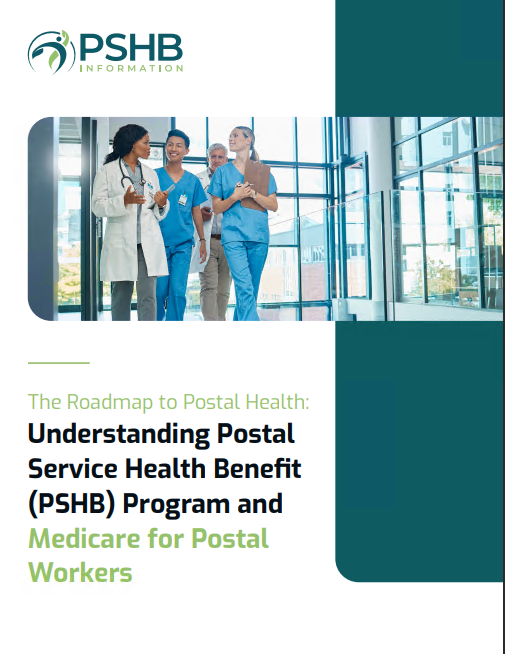Key Takeaways
-
Medicare Part C plans are shifting in 2025, with changes to costs, benefits, and coverage rules that can affect USPS retirees and employees. Reviewing your plan now can help you avoid unexpected surprises.
-
If you’re enrolled in a PSHB plan, understanding how your Medicare Advantage plan interacts with your federal benefits is key to maximizing coverage and minimizing out-of-pocket costs.
2025 Brings More Medicare Part C Changes—Are You Prepared?
If you’re a United States Postal Service (USPS) retiree or employee considering Medicare Part C (Medicare Advantage) this year, you’ll want to pay close attention to the latest changes. In 2025, Medicare Part C plans are undergoing adjustments that could impact your coverage, out-of-pocket costs, and overall benefits.
Understanding what’s different in 2025 is essential to ensuring you make the right choices. Whether you’re transitioning from a PSHB plan to Medicare or just looking to adjust your current coverage, here’s what you need to know about these evolving Medicare Advantage plans.
What’s Changing in Medicare Part C This Year?
The federal government continues to refine Medicare Advantage plans to improve affordability and access. However, some of these changes might not always work in your favor. Here’s what’s happening in 2025:
-
Annual Out-of-Pocket Cap for Prescription Drugs: Medicare Part C plans that include prescription drug coverage must now adhere to the new $2,000 out-of-pocket cap on Part D prescription drug costs. This means once you reach this limit, your plan covers 100% of your covered drug expenses for the rest of the year.
-
Shifts in Available Plan Options: Some areas may see fewer Medicare Advantage plans as providers consolidate offerings, while others may gain additional options tailored to specific needs.
-
Adjustments in Premiums and Cost-Sharing: While Medicare Advantage plan premiums remain generally stable, cost-sharing structures—including deductibles, copays, and coinsurance—may see adjustments that could increase your out-of-pocket expenses.
-
Changes to Supplemental Benefits: Certain extra benefits, such as over-the-counter allowances and transportation services, are being scaled back in many plans. If you rely on these perks, you should verify what’s still available.
-
Plan Network Modifications: Some providers are adjusting their networks, meaning your preferred doctors, hospitals, or specialists may no longer be covered. Checking for network updates is crucial.
-
New Enrollment Regulations: Medicare continues to fine-tune its enrollment policies, making it essential to be aware of deadlines and eligibility rules that could affect your ability to switch or maintain coverage.
How This Affects USPS Retirees and Employees
If you’re enrolled in the Postal Service Health Benefits (PSHB) Program, these Medicare Advantage changes might affect you in several ways. Here’s what you should consider:
-
Medicare Enrollment Requirements: If you’re a USPS retiree, you may be required to enroll in Medicare Part B to maintain PSHB coverage. If you choose a Medicare Advantage plan, you’ll want to ensure it coordinates well with your PSHB benefits.
-
Prescription Drug Costs and Coverage: Some PSHB plans include a Medicare Part D Employer Group Waiver Plan (EGWP) for prescription drug coverage. You’ll need to compare how these plans align with the new $2,000 out-of-pocket drug cost cap in Medicare Part C plans.
-
Premiums and Cost-Saving Strategies: Many Medicare Advantage plans offer reduced cost-sharing if you have Medicare Part B. However, those savings vary, and you’ll need to compare how different options work alongside your PSHB plan.
-
Changes in Preventive and Routine Care Benefits: If you rely on certain screenings, vaccinations, or wellness programs, review whether your Medicare Advantage plan is making changes to these services.
-
Potentially Higher Costs for Out-of-Network Care: With changes to plan networks, you may face higher out-of-pocket costs if your provider is no longer covered. Reviewing your provider network ensures you avoid unexpected charges.
Should You Stick With Medicare Part C or Consider Other Options?
With these changes, you may be wondering if Medicare Part C is still the best choice. Here are a few things to think about:
-
How Much Do You Use Healthcare Services? If you visit the doctor frequently or need specialized care, look closely at your plan’s network and cost-sharing structure.
-
Does Your Plan’s Drug Coverage Work for You? With the new prescription drug out-of-pocket cap, it’s worth comparing how your current coverage measures up.
-
Are You Losing Key Benefits? If your Medicare Advantage plan is reducing its extra benefits, it may be time to consider alternatives, such as Original Medicare with a Medigap plan.
-
Would You Benefit From More Flexibility? While Medicare Advantage plans offer structured coverage, Original Medicare with a Medigap policy provides more freedom in choosing doctors and specialists.
-
Do You Travel Frequently? If you spend a lot of time outside your local area, a Medicare Advantage plan with network restrictions may not be ideal.
What You Should Do Next
Navigating Medicare Part C in 2025 doesn’t have to be overwhelming. Here’s how you can stay ahead of the changes:
-
Review Your Annual Notice of Change (ANOC) – If you’re already enrolled in a Medicare Advantage plan, this document outlines what’s changing for your plan this year.
-
Compare Plans Carefully – Use Medicare’s plan comparison tools to see what options are available and how they stack up against your current coverage.
-
Check Your PSHB Benefits – If you’re a USPS retiree, make sure you understand how your federal benefits interact with Medicare.
-
Talk to a Licensed Agent – A professional can help you determine the best plan for your needs and avoid costly mistakes.
-
Look for Additional Savings Opportunities – If your out-of-pocket expenses are rising, check if you qualify for extra financial assistance programs that can help lower costs.
-
Plan for Future Healthcare Needs – If you anticipate needing more medical care in the coming years, choosing a plan with robust long-term benefits can save you money in the long run.
Get Expert Guidance on Your Medicare Choices
With so many changes to Medicare Part C in 2025, it’s more important than ever to review your options carefully. Don’t risk unexpected costs or losing valuable benefits—speak with a licensed agent listed on this website for professional advice on making the best decision for your healthcare needs.






